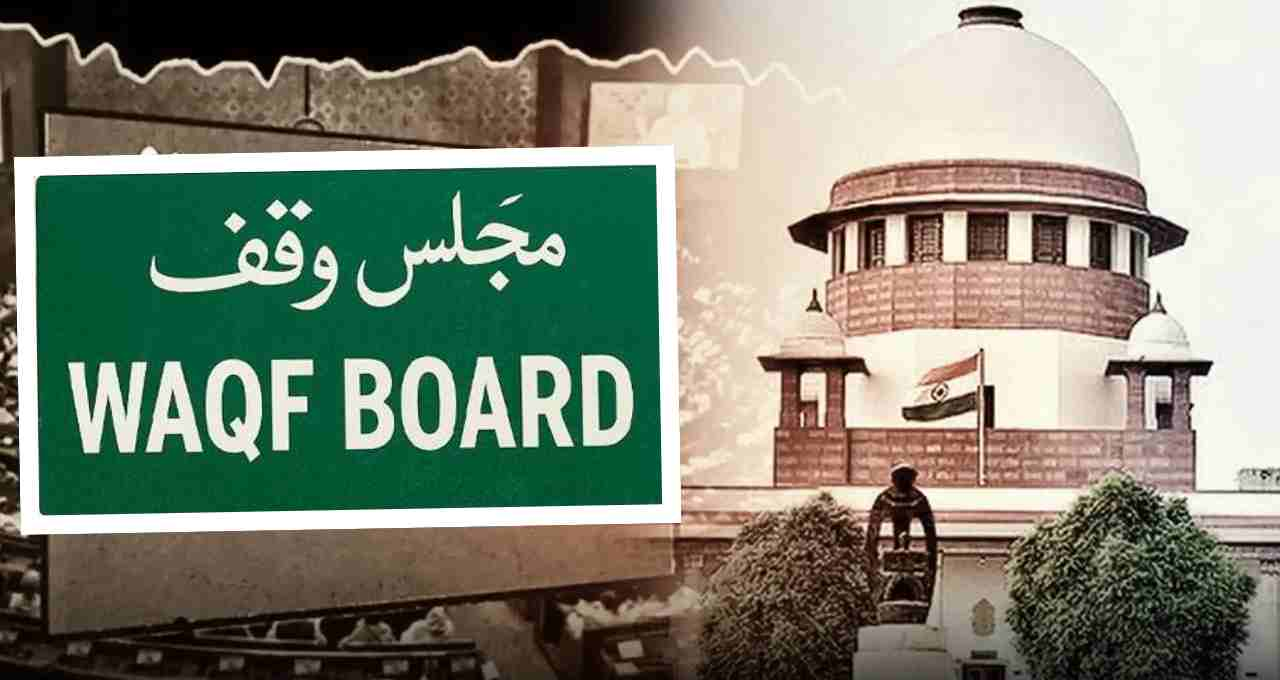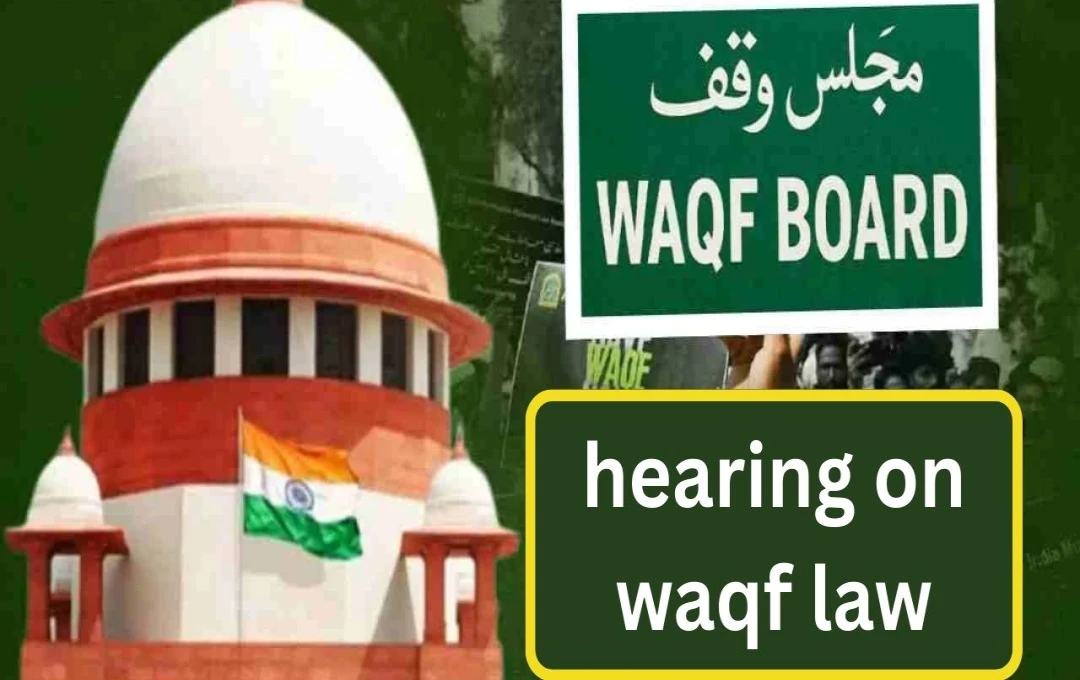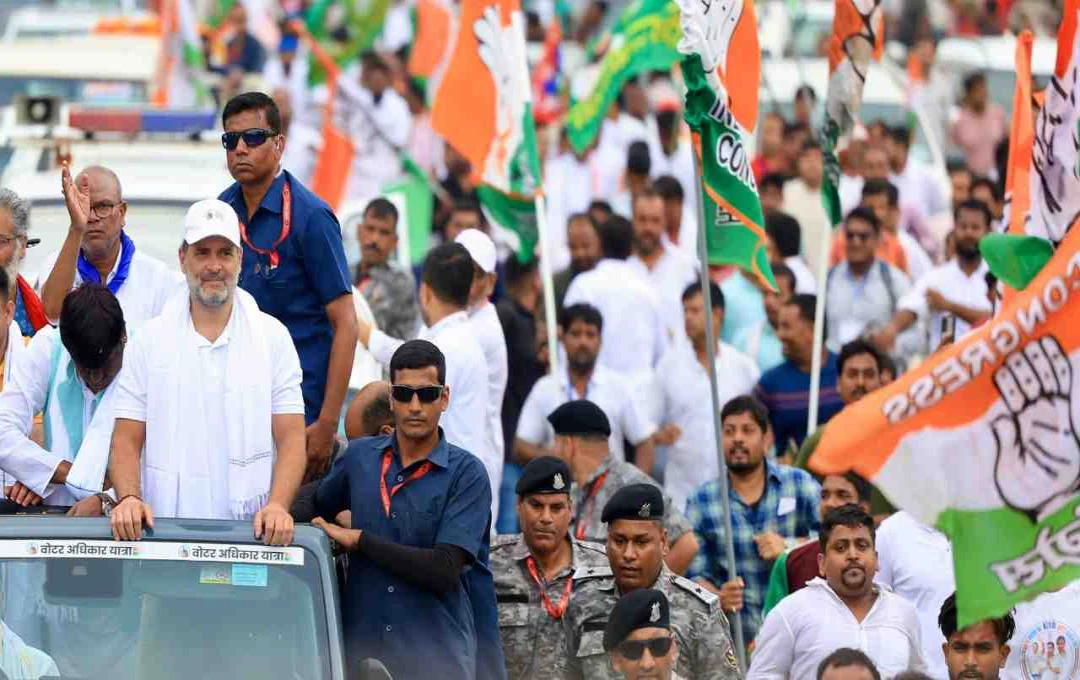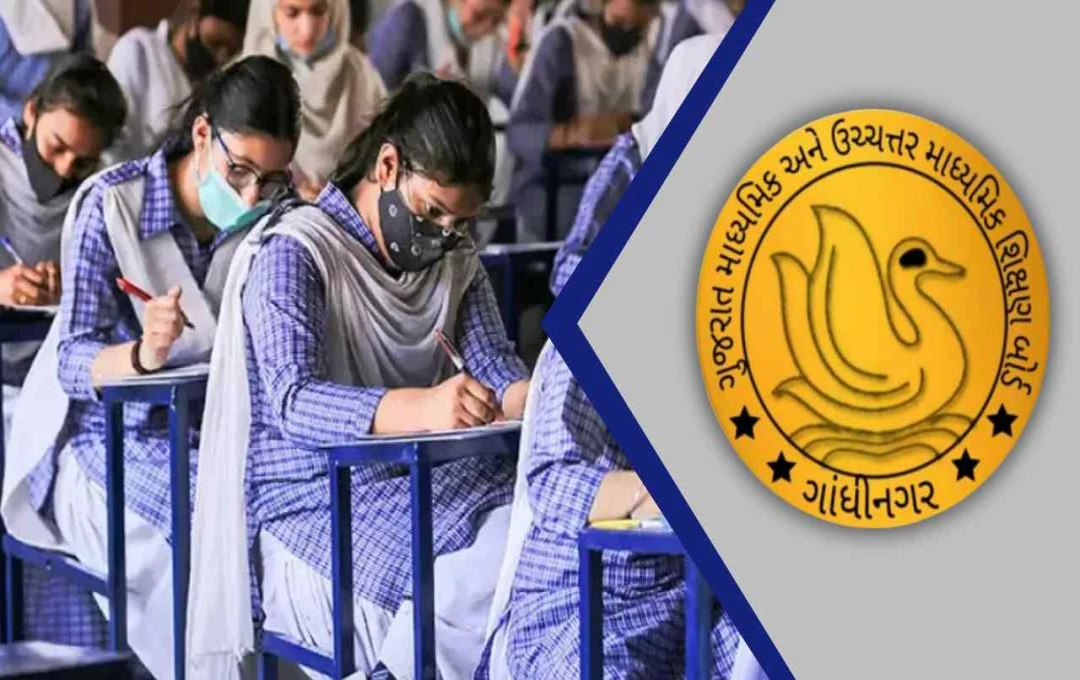The Supreme Court continued its hearing on Wednesday on petitions challenging the 2013 Waqf Act and its recent amendments. The central government unequivocally stated that comparing the structure and functioning of Waqf Boards with Hindu religious trust boards is legally untenable.
New Delhi: Hearings continue in the Supreme Court on petitions filed against amendments to the Waqf Act, with further proceedings scheduled for today. On Wednesday, Solicitor General Tushar Mehta argued that the government aims to ensure that trust land benefits all citizens.
He also stated that all versions of the Waqf Act prior to the 2013 amendment explicitly mentioned that only Muslims could Waqf their property.
Government's Argument: Waqf Property Management is Separate from Religion
Solicitor General Tushar Mehta told the Supreme Court that the Waqf Board's role is solely property management. He argued that the administration of Waqf property is a secular process and can be regulated by the Indian state. In contrast, Hindu religious trust boards are directly involved in religious activities, such as worship and ritualistic upkeep of temples.
He informed the court that Parliament has the full constitutional power to legislate in this area and that no petitioner in the current case concerning the Waqf Amendment Act, 2025, has questioned Parliament's legislative capacity.
Concerns of Non-Muslim Majority in Waqf Board Deemed Baseless
During the hearing, Mehta cited assurances received by the Joint Parliamentary Committee (JPC) that the minority character of the Waqf Council and state Waqf Boards will not change. He explained that the membership process is designed to ensure that most members are from the Muslim community.

This statement was in response to senior advocate Kapil Sibal's apprehension that the government, through the Waqf Amendment Act, 2025, is moving towards a non-Muslim majority in Waqf Boards.
Sibal's Question: Why the Differential Treatment of Muslim Institutions?
On Tuesday, Kapil Sibal raised concerns of the Muslim community in the Supreme Court, questioning why the government, which does not include non-believers as members in Hindu, Sikh, or Christian religious institutions, adopts a different approach in Muslim matters. He termed this a violation of Article 15 of the Constitution, which protects against discrimination based on religion.
Mehta informed the court that the Archaeological Survey of India (ASI) has expressed concerns about the actions of Waqf Boards. He said that many protected monuments were declared Waqf property and commercial activities were being conducted on them, hindering their preservation. He stated that in some cases, the Waqf Board had even prevented the ASI from carrying out repairs, creating serious obstacles in the preservation of historical heritage.
Centre's Stance on Comparison with Charitable Trusts
The central government clarified that Waqf Boards should be viewed as a type of secular trust, similar to charitable trusts or housing boards. Mehta also stated that while trust members overseeing Hindu religious sites can play ritualistic roles in temples, Waqf Board members only have administrative responsibilities.
He further pointed out that Charity Commissioners, who may themselves be non-Hindus, can appoint or dismiss priests of Hindu temples, which the Supreme Court has already considered a secular activity.
Hearing to Continue Today
The Supreme Court will continue its hearing on Thursday on petitions challenging the Waqf Amendment Act. The court's focus is on whether this amendment violates constitutionally guaranteed rights to religious freedom and non-discrimination. The government has also clarified its desire for better management of Waqf properties to benefit all citizens and protect the nation's historical heritage. The Centre has assured that the identity and rights of the Muslim community will be respected.














